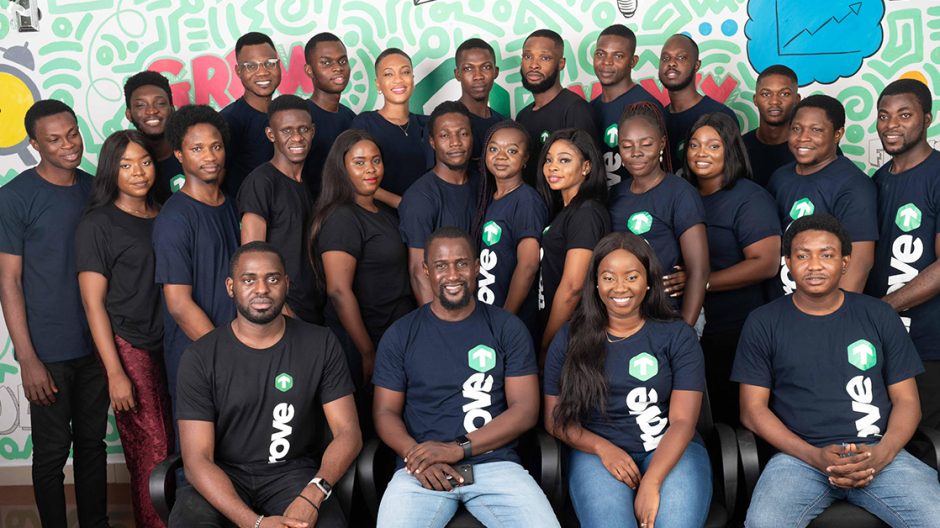“Don’t work for money, but let money work for you”. The first time I heard that phrase was probably in my early teens when an uncle was trying to teach me about getting rich.
This uncle (Uncle B) was a wealthy man with a hugely successful manufacturing enterprise. Uncle B was one of the many non-biological uncles we grew up knowing. He was the first man I genuinely aspired to be like; his stories inspired me, and to this day, I can’t tell whether it was the content of his words or the almost physical encounter with the aura of confidence ever present around him.
Uncle B was trying to teach me, a young, ambitious boy, a thing or two about money by convincing me to read what was at the time (and still is) a viral book called Rich Dad, Poor Dad, by Robert T. Kiyosaki.
I remember him saying:
“The only way to be rich is when you learn to make money work for you…..don’t work for money, but let money work for you.”
Later, years after reading the book, it became clear to me that what Uncle B was trying to do then was to teach me to invest money.
Investing money is something Oluwatomi Solanke knows all too well. You would expect that because he is the founder and CEO of Trove Finance, a micro-investing platform that makes investing in publicly traded US, Nigerian, and Chinese stocks and government bonds accessible to its users.
Founder Africa (FA) sat down with Tomi, as he is called, earlier this year to tell his story on the motivation behind his startup, the challenges he faced, habits that kept him going and advice to prospective and young entrepreneurs.
Tomi was born and raised in Lagos, Nigeria, where he attended the renowned high school King’s College, after which he went to the University of Lagos to study Chemical Engineering.
Growing up, Tomi wanted to become an engineer because it seemed everyone (particularly his Parents) thought it was the best thing to do. Most young Nigerians can probably sympathize with this idea of studying for a degree that would make your parents proud – you can sort out your career ambitions afterward. For Tomi, the reasons his Parents gave, as they always are, made a lot of sense.
He says: “I grew up hearing things like, you need to work in Oil and Gas, you need to make money, buy a car, build a house, and marry a pretty wife.”
However, despite trying to make mum, Dad, Aunts, Uncles, and every other older citizen happy by studying Chemical Engineering, Tomi always knew an entrepreneur lurking inside of him.
It was that entrepreneur that got him experimenting with business ideas alongside studying for a degree in the University. He remembers those times with a hint of nostalgia when he told FA: “I was involved in quite a few things in University. I got involved in some popular things like; trading stocks and forex, selling insurance, selling electrical consumer goods, and even ventured into the fashion space.”
Tomi got some reasonable success with his ventures at University, but it was not until his final year that things got a bit serious – so much so that he almost dropped out. In his words:
At some point, I almost dropped out of University. In my 4th year, a famous Nigerian celebrity, whom I had met through my sister, became interested in my startup. Together with a couple of people, we raised about N7 million (Naira) at a N40 million (Naira) valuation – with the celebrity becoming an ambassador for the brand.
Unfortunately, after raising the money, it became apparent that we did not all have the same motives, and therefore the startup struggled to take off and eventually failed.
Even though it wasn’t the big break I expected, it was a necessary experience for me with some big lessons. I also got the validation (and confidence) that my ideas could appeal to a broad category of people.
That singular experience was a defining moment for me. Raising the capital, setting up the business, starting to run the company, and hiring, all of which I was doing as a 400-level undergraduate student, opened my mind to the kind of things you could achieve with your mind if you are focused on building.
Tomi is not alone in having a ‘failed startup’ trophy in his cabinet. It is widely reported that up to 90% of startups fail, and almost 1 in 4 successful founders have had a failed startup in their careers.
Failure is not a problem – in fact, it is popular these days to encourage founders to “fail fast”. What’s more important, though, is that, like Tomi, you learn well and quickly from the experience of failing.
FA Tip: The best founders are not only resilient, but they also can learn from all experiences, even the ones that don’t go well.
A dream to inspire wealth creation.
If you ask most young Nigerians how to create wealth, you would almost certainly hear the word Hammer (local slang for making a lot of money and nothing to do with the carpenter’s handy tool). The concept of wealth creation in Nigeria (and Africa at large) is something most feel is a privilege of very few in society. This is caused by two challenges: access to investment opportunities and the lack of financial education.
Like my Uncle B, Tomi also understands that for young Africans to create wealth, they would need to begin making smart money moves (slang for saving or investing money) and making them early.
In his words:
A friend and I discussed a tweet about Amazon stocks and went to look for information, but all to no avail. I noticed that hundreds of thousands of people were looking to buy the same Amazon stocks. I reached out to a friend in the US, trying to get information on how to buy this Amazon stock.
He told me I needed a social security number, and I was clueless as to what that was at that time. I found out that I couldn’t get that because I was a resident of Nigeria. Coincidentally, his Mum was trying to invest in some as well. It just made sense to build something to solve not just my own problems but also my friend’s Mum’s problems. That friend finally became a Trove co-founder.
FA Tip 2: Most successful founders are solving a real problem they or someone they know has faced themselves.
FA Tip 3: You will almost always be successful doing something you enjoy and are passionate about.
Rough seas of starting up
Finding a problem to solve is one thing, but building and scaling a startup is different. Trove, which according to Tomi, represents a place where you can keep your financial treasures, has had its fair share of the ups and downs you would expect from a typical startup.
From raising funds to finding talent and dealing with regulators, it’s all been challenging, educational and fun.
A major challenge today for Trove is finding the best people to take the business to the next point. Growing a startup, in the beginning, is okay with four co-founders, but when you start hitting customers in the thousands, then you need to begin acquiring and retaining the best talent out there.
In his words:
“You need a different skill set to get to 10,000 customers, from what you used to get to 1,000 customers, and this continues till you get to like a million customers. Sometimes the continuous recruitment could feel like a case of kissing plenty of frogs to find the great ones.”
Tomi believes that he and his co-founders are getting better at identifying talent. Right now, their focus is more on creating a pipeline of talented people that they could either train or pick from.
However, the biggest issue for Trove has been the harsh regulatory environment. In particular, the changing regulatory landscape in Nigeria has given Tomi the most sleepless nights.
Trove has been on the receiving end of some of the changes introduced by regulators in Nigeria. For example, in August 2021, Tech Cabal reported that the Central Bank of Nigeria (CBN) froze several micro-investment platforms’ bank accounts.
Trove has weathered these challenges so far, and like always, Tomi sees these experiences as a learning curve for him and his team.
In his words:
“I think it’s been alright with the usual challenges of growing a business. For a lot of people, they’d want to start a business today and become a billionaire tomorrow, but it hardly works that way.
The reward for me is in the impact. The money is part of it, so we can continue building. It’s not been a bad journey, but I can’t say it’s been a smooth sail; you know a smooth sea never made a skilled sailor.”
Looking back but moving forward
They say Hindsight is a wonderful thing, so FA wanted to know what wonderful things Trove had left behind on their journey so far – just so our readers could pick them up along the way.
For Tomi, there are not so many things he would have done differently looking back. The team was very grounded from Day 1, with a strong desire to build an innovative and decent product. They stretched every dollar they had and resisted the temptation to go out all to acquire customers (marketing $$$$) and focus more on building a solid core product with little bells and whistles.
In his words:
When we started, it was pretty much blue skies. Nobody was doing this thing, and we had a decent product with word of mouth doing decent work for us. I felt that we could have done a lot more around education and user acquisition.
Looking at Trove from the outside, one could argue that more aggression may have helped them better until now. Trove has few but arguably much louder competitors in the Nigerian market. In a novel market where you can influence customer behaviour, it probably doesn’t hurt to acquire customers quickly.
Trove’s vision is the driving force for Tomi and his team. They see a world of borderless investing for Africa, where Africans are not marginalised or shut out from wealth creation opportunities.
Tomi goes on to say: I think opportunities should be given regardless of where you stay and irrespective of the income level that you have. For me, it is giving the ability to as many people as possible to earn. We are constantly trying to figure out what kind of technology and product can help take us closer to that world of borderless investing for Africans.
FA Tip: Becoming a successful entrepreneur starts with a passion and unrelenting determination to solve someone else’s problems.
Something for the boys and girls
We started this article with a piece of simple but straightforward advice from Uncle B, and after spending time with Tomi, we only felt it was appropriate that we hear likewise from him. So here are some handy insights from Tomi to other founders out there that we hope you find useful.
We wrap this article in Tomi’s words for you:
- Just chill! Good things come to people who are consistent, so be consistent at whatever you are doing and play to your strengths; eventually, everything good will come to you.
- Don’t downplay networking. Try to make friends and get a good ecosystem.
- Be a person of integrity and try to be a relatable human being.
- Be consistent. Sometimes, it may be your 2nd, 4th, or 5th startup but keep doing it. If you believe, just follow it till the end.




